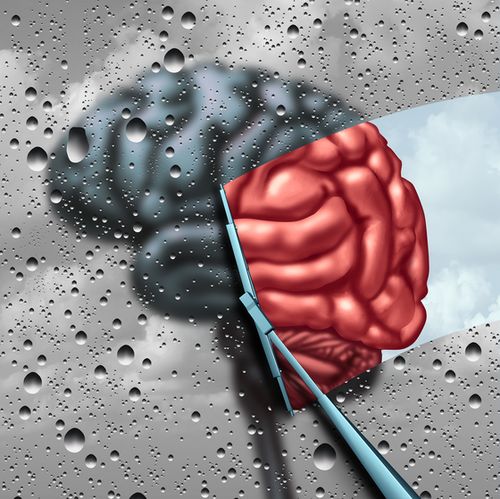
Not too long ago, scientists believed the adult brain was unable to change and doomed to inevitable slow decline. Now we know that is not completely true. While your brain does slow down with age, it remains amazingly adaptable. From around the age of 40 the brain loses volume, but if it is challenged and stretched it will accommodate and improve. Research shows that we can not only change the way we think and feel, but that those thoughts and feelings can change the very physical workings of the brain—it is called neuroplasticity. And that means the brain you own is the one you build, and you are building it every day with what you do. Exercise and nutrition are key, and genetics plays a role, of course.
A US study recently published findings on online brain training games, concluding that the games—which challenge memory and reasoning skills—could cut the risk of dementia by a third. Experts described these results as “spectacular”.
But there are other changes you can make that have a proven impact on brain function. You need to challenge your brain so find something really difficult and new that you like to do—and do it. Numerous studies prove that the more mentally active you stay, the longer you stay mentally active, building new networks among your brain cells. Build a boat, learn a language, make art, make music—and don’t retire from life when you stop working. Studies show that the educated brain stays sharp longer, so keep learning—or even better, teach a class.
The healing benefits of sleep are obvious. Now studies show that it enhances memory if you sleep within a few hours of learning something new—and that sleep deprivation disrupts memory formation. These studies, both from the US, found that even a very short sleep after learning strengthens memory. It appears that our unconscious (or autonomic) nervous system stays at work while we sleep, seemingly consolidating all that new learning.
And don’t forget naps. Even very short ones can enhance memory and improve learning. Sara Mednick, a professor of psychology at the University of California, Riverside, author of Take a Nap! Change Your Life and co-author of one of the sleep studies, has said that napping between 15 and 90 minutes is great for the brain and can be as good as a whole night’s sleep.
Dozens of studies show meditation reduces stress. And newer studies show meditation also physically changes the brain. Ongoing studies from Richie Davidson at the Center for Healthy Minds at the University of Wisconsin-Madison, USA, have shown meditation increases grey matter in parts of the brain associated with flexibility, memory and learning, and also executive function—the ability to solve problems and make choices. While the most dramatic changes were seen in brains that had been meditating for decades, measurable brain changes were seen after only a few months of 20-minute-a-day meditation. Some physical and emotional changes could be noted even sooner, researchers say.
Being in love feels great, but it is also good for the brain. It is connected with oxytocin, the neurohormone of bonding, trust and generosity as well as dopamine, the key player in ecstasy (and addiction). These feel-good chemicals surge at orgasm, benefiting your brain by increasing blood flow, reducing pain and stress and, according to 2013 animal studies at the University of Maryland, may even prompt the growth of new brain cells.
Your brain hates change and loves habit. It is more efficient to zip information along the neural networks already in place. However, a brain needs change to stay flexible and able to adapt. This is why travel is good medicine for the brain, according to the Global Coalition on Aging. Foreign places, faces, languages and food “challenge the brain with new and different experiences and environments,” said neuropsychologist Paul Nussman in a 2013 white paper titled Destination Healthy Aging: The Physical, Cognitive and Social Benefits of Travel. Exposure to new experiences “promotes brain health and builds brain resilience across the lifespan,” he said. Good reasons to book that week in Rome.
Socialisation is rated high by researchers for physical and mental health. A Harvard University study found that an active social life reduced the risk of dementia and slowed memory decline in old people. In fact, some research suggests friends are more important to our mental health than family (unless, of course, your family members are also your friends).
What we feel can also change our brain. Sustained negative emotions and fear create stress, which produces neurochemicals which can kill brain cells and even contribute to Alzheimer’s. But a positive attitude is connected with less anxiety and stress, better social skills and better heart health, all good for the brain.
Judith Horstman is author of The Scientific American Healthy Aging Brain: The Neuroscience of Making the Most of Your Mature Mind.





